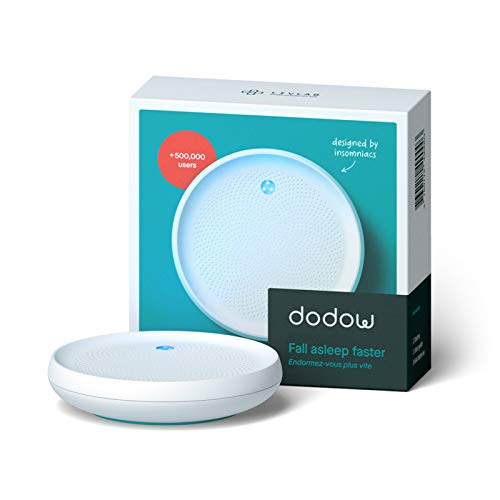Stress-Free Aging: Your Guide to Cortisol Management & Why It Matters

Disclaimer: this website does not provide medical advice. Articles are for informational purposes only and should not be used as a substitute for professional medical advice, diagnosis or treatment. Always seek the advice of your physician or other qualified healthcare provider with any questions you may have regarding a medical condition or treatment, and never disregard professional medical advice or delay in seeking it because of something you have read on this website.
Introduction
As we age, managing stress becomes increasingly important for overall health and wellbeing, and one crucial aspect of stress management is regulating cortisol levels in the body. Cortisol, often referred to as the “stress hormone,” plays a significant role in various bodily functions, and keeping it in balance is essential for optimal health.
In this article, we’ll explore the importance of cortisol regulation, how high cortisol levels can negatively impact health, and provide ten effective strategies to lower cortisol levels naturally.
What role does cortisol play in the human body?
According to WebMD.com, Cortisol, produced by the adrenal glands, serves several vital functions in the body, helping to regulate metabolism, blood sugar levels, inflammation, and assisting in the body’s response to stress.
Cortisol follows a natural rhythm, with levels typically peaking in the morning to help wake you up and gradually decreasing throughout the day, reaching their lowest point at night to facilitate restful sleep.
- Tap the touchpad once for the 8 min mode and twice for the 20 min mode. Synchronize your breath with the blue light projected onto the ceiling: breathe in as it expands.......and exhale when it retracts.
- You may find that the expiration time is longer. It's intentional. It helps to create the feeling of fatigue that leads to falling asleep.
- At the end of the exercise (8 or 20 minutes) Dodow turns itself off. You will then be in the ideal conditions to fall asleep in the position of your choice.
- By synchronizing your breath (abdominal) with the light pulse, Dodow gradually takes you from 11 to 6 breaths per minute.
- According to several studies, this rhythm is optimal for stimulating the baroreflex - a reflex that will rebalance your autonomic nervous system to bring you to a state of rest quickly.
How do cortisol levels become too high?
Various factors can contribute to elevated cortisol levels, including chronic stress, lack of sleep, unhealthy lifestyle habits, including drinking alcohol, smoking and taking no exercise, and certain medical conditions. When faced with prolonged stress, the body may continually release cortisol, leading to chronically elevated levels.
High cortisol levels & skin aging
There is a connection between increased cortisol levels and faster skin aging. In the study, ‘Brain-Skin Connection: Stress, Inflammation and Skin Aging’, they talked about telomere shortening being connected with chronic psychological stress and aging. Telomeres are part of our chromosomes and they shorten with each cell division, eventually leading to cellular aging.
Various stressful situations have been associated with shorter telomere length, including caring for sick or elderly patients, depression and trauma.
Telomere shortening can lead to skin damage and signs of aging. The study also mentions that poor quality sleepers showed increased signs of skin aging including fine lines, uneven pigmentation and reduced elasticity.
Cortisol Reducing Morning Routine
High Cortisol Levels & Skin Aging
High cortisol levels can wreak havoc on both physical and mental health, especially as we get a bit older. Some common issues associated with elevated cortisol include:
- Sleep disturbances: High cortisol levels can interfere with the body’s natural sleep-wake cycle, leading to difficulty falling asleep or staying asleep throughout the night.
- Weight gain: Cortisol imbalance is linked to increased abdominal fat storage, making weight management more challenging.
- Anxiety and fatigue: Chronically elevated cortisol levels can contribute to feelings of anxiety, irritability, and tiredness, impacting overall emotional wellbeing.
10 Strategies to Lower Cortisol Levels
#1 Prioritise sleep: Aim for 7-9 hours of quality sleep each night by establishing a consistent bedtime routine and creating a relaxing sleep environment.
Check out our article Sleep Soundly, Age Gracefully: The Role of Melatonin in Healthy Aging
#2 Engage in regular physical activity: Participate in activities you enjoy, such as walking, swimming, or dancing, to reduce stress and promote overall wellbeing.
Check out our article Strong Bones, Stronger You: The Incredible Link Between Resistance Training and Bone Density
#3 Maintain a balanced diet: Focus on whole, nutrient-dense foods and limit consumption of processed foods, sugar, and caffeine, which can contribute to cortisol imbalances.
Check out our article The Ultimate Guide to Adding More Protein into Your Diet Without Relying on Chicken

#4 Cultivate social connections: Spend time with supportive friends and family members who uplift and encourage you, fostering a sense of belonging and emotional resilience.
Check out our article Living Better and Longer: The Science Behind Blue Zone Lifestyles
#5 Spend time outdoors: Enjoying nature can have a calming effect on the mind and body, helping to lower cortisol levels and improve mood.
Check out our article Walking: can it contribute to greater life expectancy?
#6 Practice time management: Break tasks into manageable chunks, prioritise responsibilities, and delegate when necessary to reduce feelings of overwhelm and stress.

#7 Incorporate relaxation rituals: Whether it’s reading a book, taking a warm bath, or listening to soothing music, find activities that help you unwind and relax. Taking care of a pet is also something to consider as the feelings of love between an owner and pet can be very calming.
#8 Supplements:
- Fish oils, rich in omega-3 fatty acids, have been shown to have anti-inflammatory properties and can help regulate cortisol levels by reducing the body’s stress response.
- Ashwagandha, a herb used in traditional Ayurvedic medicine, has also been found to regulate cortisol production and promote relaxation.
#9 Journalling & practising gratitude: Writing every night about whatever comes to mind can help you understand your emotions and process the events of the day. Many people find it helpful to make a list of things they are grateful for as this practice helps them to remember all the good things about their lives.
#10 Seek professional support: If you feel that your cortisol levels are remaining high despite lifestyle changes, consult with a healthcare provider to look into treatment options or possible underlying health issues.
- Spend time reflecting on your day to day lifestyle
- Document your patterns around eating, exercise and social connection
- Journal how you are feeling
- Record your alcohol intake
Conclusion
If peace of mind, beauty and longevity are important to you, and we imagine they are important to all of us, you need to be aware of your cortisol levels and the tell-tale signs when they are too high.
One of the problems in modern-day society is how much we prioritise work and, when our work-life-balance is out of kilter, we can suffer with stress and high cortisol levels because we are not taking time to relax, unwind and connect with our loved ones.
So make today your day to reflect on your life and your stress levels, and what steps you can take to improve your overall wellbeing.
Do you think your cortisol levels are high? Have you taken any steps to reduce your cortisol levels? Do you have any tips you could share with the Seeoran community?


